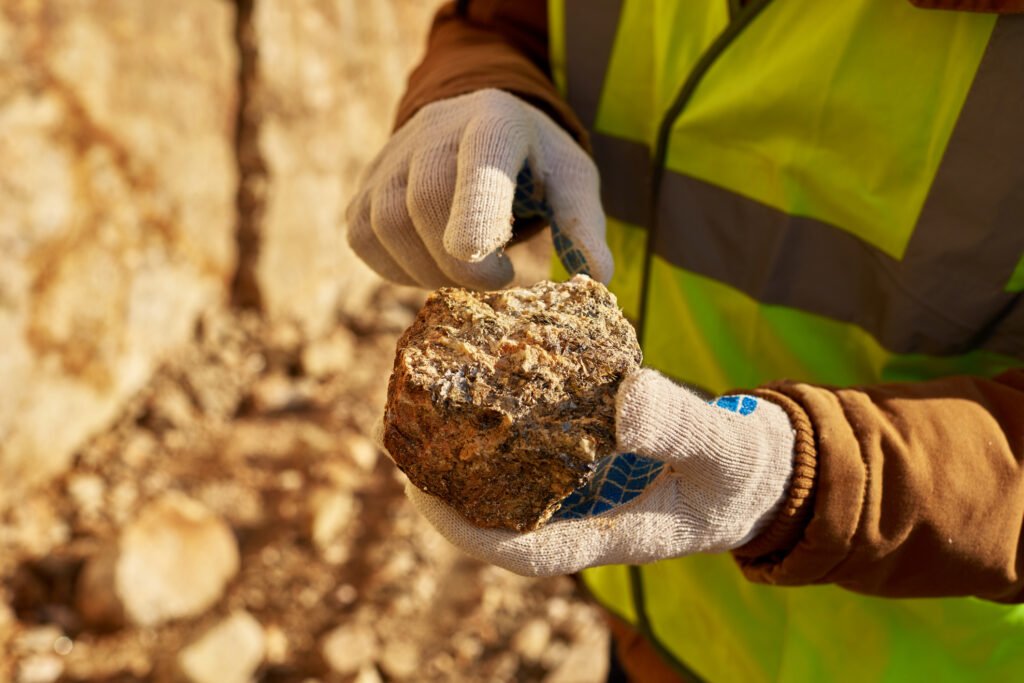Gold Mining in Tanzania
Tanzania is Africa’s 3rd largest gold producer after Ghana and South Africa, accounting for 1.3% of the total global gold production in 2021. Tanzania’s gold reserves are estimated at about 45 million ounces
Our directors spent last month in Tanzania to study a deal to participate in expanding a mining project on Gold. The local expert gave full assistance in analyzing the opportunity; we had an impressive and brilliant sensation that it is a great country and a perfect opportunity. Our experts are already preparing a project, and our board members had an initial meeting in which they created a reserve of 375K USD to start a gold bond platform that will be listed on a market that we are still deciding which is more suitable.
Our Business planners are engaging new expert staff in the Gold Mining Market and preparing a Business Plan to generate a prospectus for our offer. We estimate a 10M investment plan for the first year in which we will insert 50% from our assets and raise the remaining part through a profitable Bond in terms of asset and return.
Gold mining provides a leveraged investment into gold since a gold mining firm’s share gives only access to one unit of gold but also a share in the total future production of the gold miner. We are so studying a convertible bond that will give a bonus to the initial investors
We believe that the Gold mining market will increase considerably, and we would like to be present to offer our investors and customers this profitable opportunity with dedicated products.
GOLD IS THERE
Don’t think this image is poor, our staff locally have recorded all documents and wanted to show the small land where our story will start


A gold bull market is unique among bull markets
- On December 4th, the price of gold attained a new record, momentarily exceeding USD 2,100. Gold exhibited robust gains, achieving the highest monthly and yearly closures, concluding the year at USD 2,063 per troy ounce (+13.2%).
- At the end of the year, the price of silver was USD 23.9, resulting in a gold-to-silver ratio of 86:1. We anticipate a series of unprecedented gold peaks in 2024, which will indicate the onset of a new long-term bull market.
- In this nascent bull market, anticipated to endure for several years, we forecast the gold-to-silver ratio would decline below 30:1, establishing an initial target for 2024 at 70:1.
- Following the significant global crisis, central banks have persistently augmented their gold stockpiles, establishing new records in 2022 and 2023.
- Consequently, we forecast that gold will conclude 2024 with a minimum increase of 20 percent in USD and expect mining equities to outperform the underlying commodity.
- If gold appreciates by 20 percent, it will conclude the year at USD 2,475. With a gold-to-silver ratio of 70:1, silver will finish at USD 35, resulting in a 48 percent return.
Physical Gold vs. mining stocks
There are other ways to invest in gold as an asset and obtain exposure to the gold market. Gold mining company stocks, unallocated accounts, gold ETFs, and paper gold are all large industries that depend on demand for the precious metal.
Mining businesses’ performance is tied to global gold demand, even though this is not buying gold. Negative economic situations and political instability can promote it, much like gold.
Demand for gold rises when investors lose faith in other assets due to its global reputation as a safe store of value that can withstand economic and political disasters. Naturally, gold demand enhances the profitability of gold producers, benefiting mining company shareholders.


The same investment?
Real Gold
Investment in mining firms differs significantly from buying real gold, notwithstanding the connection. Gold and gold mines have a long-standing relationship. However, there are significant disparities in investments between the two. Advocates of mining equities claim that investing in mining businesses might yield more significant gains than holding physical bullion. Despite their operations, mining companies are generally considered businesses, not precious metals. Naturally, this has benefits. Shareholders in gold mining companies get annual dividends, unlike actual bullion investors. Additionally, a well-run company can remain profitable during challenging times. Investing in a profitable mining company can provide a steady return even when gold demand is low and its price is lower.
However, mining stocks may involve risks not typically associated with physical bullion ownership. While a well-managed mining firm can be prosperous during tough times, a poorly operated one may fail even in good times. Shares in the corporation would become worthless, demonstrating the distinction between gold and other assets.
Equity in any company, regardless of industry, has no intrinsic value and is only worth a percentage of its value. Choosing the appropriate stocks is crucial, as a share in a failed firm is worthless. The same cannot be stated for actual gold. While gold prices fluctuate with the economy, it remains a valuable tangible asset.
In conclusion, investing in mining companies differs from investing in gold since many factors exist. The two assets are related—without gold demand, there are no gold mines—but they are fundamentally distinct. Gold investors value its long-term security. Mines are companies that make human mistakes and are under growing environmental scrutiny. Thus, they may fail as organizations, losing investors money for economic or other reasons. This risk is absent with physical, allocated gold bars and coins, which have intrinsic worth independent of governments and organizations.
Gold gives the most significant security of possessing a physical item with inherent worth, but mining stocks depend on several things to be profitable. Although this doesn’t make them terrible investments, bullion is the only alternative for long-term security like gold.
